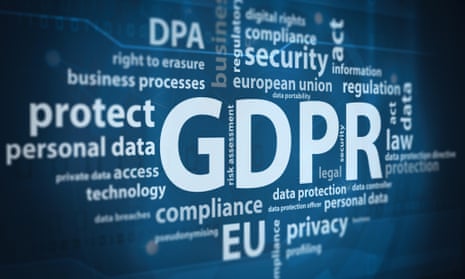The raw material of most journalism is information about people. Not just their failings and follies, but also their triumphs, strivings, diversions, endurance and passions. So when the law adds to the rights and duties that attach to information about people, effects on the practice of journalism can be significant.
Recent political bargaining in the UK has resulted in changes to data protection law which, I believe, could have serious consequences. Legislative revision of data protection – necessary for policy reasons unrelated to journalism – proved a handy tool for those still wrangling about whether the UK press had been sufficiently punished for offences real and perceived. The messy statutory result took effect on 25 May.
Much will depend on how information commissioners, present and future, use their powers of investigation and review, and on how judges treat media claims that to comply with the amended law in particular cases would be incompatible with the purposes of journalism.
The history of journalism – at its disclosing, democratic best – pulsates with the tightening and loosening of controls imposed by law. Licensing of newspapers was law to restrict the vehicles that spread information. Stamp taxes aimed to limit the vehicles’ viability and affordability, so as to limit audiences for information. Laws of defamation and contempt of court focus mainly on the effects of information after it is published or broadcast.
Data protection law is more pervasive. It attaches enforceable rights and duties to personal data – a concept it defines very broadly – and to its processing by data controllers, those who collect and use personal information in myriad contexts in government, commerce and community.
Fundamental in data protection law is the purpose for which any given information is collected. Usually the purpose is specific, direct and routine – for example, to administer a benefits scheme; to provide household goods or banking services to customers; to issue a driving licence. Often, collection is compelled, and almost universal. Typically, the personal data is not going to be published. The data should be accurate, relevant and up to date, so that it is fit for its specific purpose, and to this end the law gives individuals rights to seek rectification or erasure of their personal data.
It makes sense until you try to apply such a scheme to journalism. Much of the information that reporters may gather about people never gets published. It strains convention and experience to say that journalists are collecting or processing data in ways a bureaucratic data protection scheme can or should regulate. Yet the revised Data Protection Act has created new provisions aimed expressly at journalism, to be administered by a statutory office that was not designed for such a role.
Journalism bears no resemblance to the routine handling of data for specific governmental or commercial purposes. Journalism’s purposes have a reactive, random, in-the-moment dimension that serves three vital public interests: an immediate societal need to know, to debate and to decide together; accountability through disclosure; and, over time, accretion of journalism into an archive with great public value, a kind of collective memory.
The archives of journalism organisations comprise a resource mined constantly, not only by reporters but by researchers from many disciplines – historians, economists, epidemiologists, genealogists. Their purposes are not specific, but instead gloriously, unknowably varied. We cannot foresee the knowledge they will make from information the journalists first found, organised and disclosed. All we know is that the resource needs to be kept as intact as possible.
Now that those archives, with their undoubted strengths and flaws, can be searched online everywhere, items about some individuals may require correction or clarification or, very rarely, deletion. Media organisations have been grappling with that challenge for some time.
The revised law pits media as data controllers directly against individuals as data subjects with enforceable rights. Some of them will be lawyered-up, powerful individuals properly subject to journalistic scrutiny. They will assert their claims to rectify or erase journalism about themselves; the media organisation will often reply that to do so would be incompatible with the purposes of journalism, which is underpinned by freedom of expression or of information; the information commissioner, author of guidelines and holder of investigatory powers, may get involved; and either the commissioner or the courts will decide appeals.
Direct interactions between data subjects and data controllers may lead to the sidelining of third-party complaint handlers such as the publisher-built Independent Press Standards Organisation (Ipso) and the officially recognised Independent Monitor for the Press (Impress).
In 2012 the Leveson report pointed to potential press-related uses of data protection law (volume III, part H), but years of loud combat among politicians, editors and press critics over other issues distracted attention from the implications.
A mostly self-regulated process is being sucked into a legal process in which nascent reporting may be hindered and past reporting, and the professional news judgments that led to it, may be revisited and revised or removed from archives.
The new data protection scheme shows the extent to which UK parliamentarians, with mixed motives, are unwilling to trust editors and publishers with discretions formerly accepted as appropriate to be exercised by the fourth estate.

